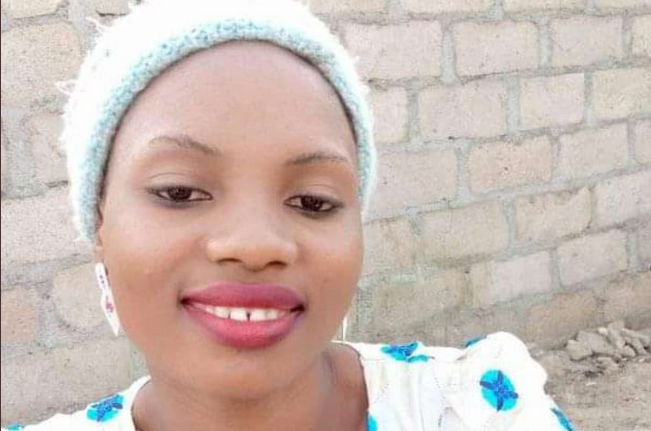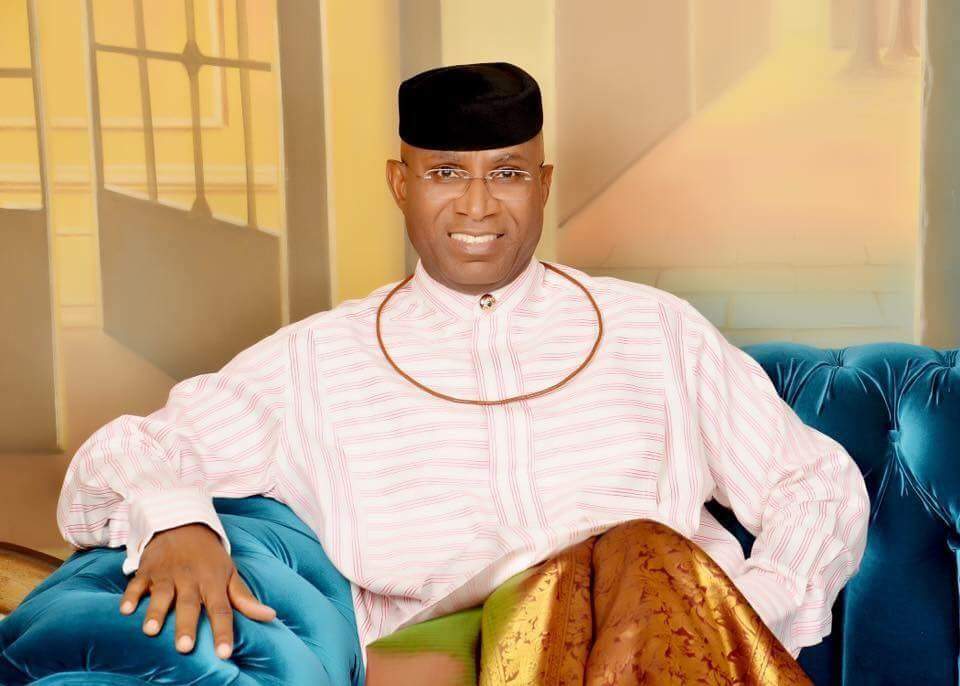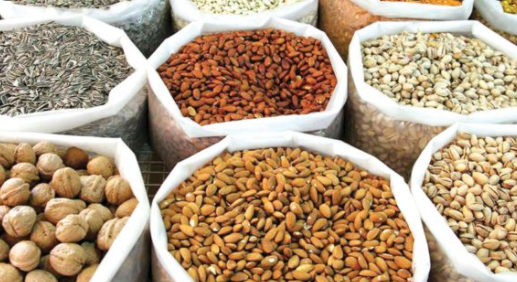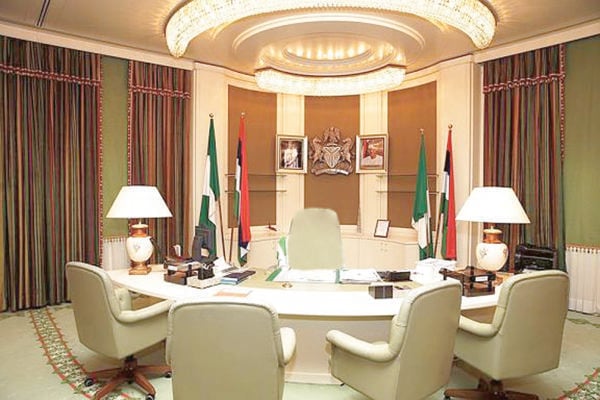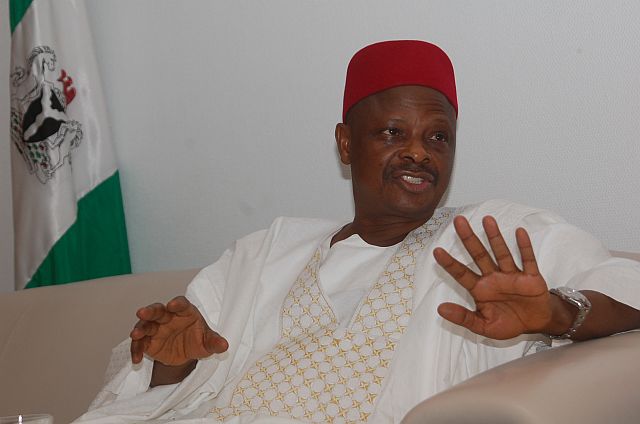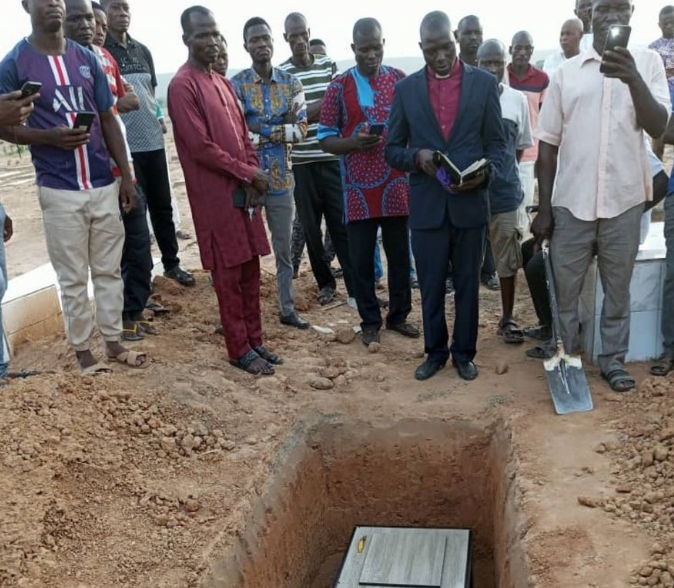Religion is one sociocultural phenomenon I hate to discuss, especially with strangers whose level of religiosity or liberality I’m unable to determine because I view religion as a personal thing – a pact between man and his Creator. I, therefore, see no reason why I should bother the next person or my neighbour with it, especially, when and if I’m aware, that such a person already subscribed to a faith, different from mine. Nigerians are reputed to be some of the most religious groups of people you can ever find, anywhere around the world. But that does not necessarily mean that they are as godly as they are religious. Religiosity and godliness are two different things; and as far as Nigerians are concerned, this is true. As a matter of fact, some people’s real characters may not be able to recognise their persona (social appearances) in the dark when and if, they meet, viewed through the lens of Canadian sociologist, Ervin Goffman, as he espoused in his theory of “Dramaturgy”. This might also be true for other groups.
In the case of Nigerians, I’m certain that almost 99.99999% of those looting public funds in Nigeria, those doing illegal oil-bunkering, those who engage in kidnapping, those who take bribes, and perpetrators of other types of crime that are too numerous to be listed, are either adherents of the two dominants Abrahamic religions – Islam and Christianity. But these two religions parade the most sanctimonious set of Nigerians, when it comes to expressing their religiosity regarding their respective religions, extremism, which does not have a particular home base, becomes a common denominator. If one takes a look at events across the globe, over the last four decades or thereabouts, these two religions with their origins in the Middle East could be described as the custodians of extremism, without any fear of contradiction. But most often, the most dominant of the two religions in the northern part of Nigeria – Islam — has done very little to curtail the extremist views among them.
Majority of the crises occurring in the region, since independence in 1960, have a religious undertone. If somebody is not beheaded in Kano for alleged desecration of a piece of paper containing some Arabic inscriptions, somebody would be killing non-Muslim compatriots resident in the region as a protest against a cartoon in Denmark mocking the Holy Prophet; or in solidarity with one of the parties in the age-long Israeli-Palestinian conflict; or one obsessed governor is implementing (political) sharia, or reacting to some events happening in far-flung places with no direct relationship with Nigeria. These in most cases are incidents that do very little if at all, to enhance unity and peaceful co-existence among the diverse groups in the country.
Go to the south-east; the most dominant religion, Christianity, has this “Catholic-Anglican” dichotomy. The extremism among these two is such that an adherent of a sect would not give his daughter’s hand out in marriage to the others. Anyone who does would be excommunicated or mildly ostracised. The tension between the two groups just got a bit diffused by the emergence of a Pentecostal brand of Christianity, that appears to threaten their mutually intended dominance over one another.
Advertisement
The south-west is the only region where there appears to be a little balance, such that, no one can say, this is the most dominant of the two religions. In some cases, if the two imported religions separate them, traditional religion, which they do not see as a barrier to practising the Middle Eastern gifts of “Abrahamic religions”, serves as a unifier. Funny, but true! Apart from that, in most families, you find adherents of the two religions in equal numbers. My own extended family is a classical example. That kind of serves as the in-built mechanism for maintaining peaceful coexistence, religious tolerance, a restraining factor, and an antidote for religious extremism. I gave detail about that in my article in this column, published November 10, 2021.
While religious conflict is a rare occurrence in the south-east, the story is a different kettle of fish in the north. The magnitude of religion-induced conflicts that you see in the north, would also not occur in the south-west. One of the ugly scenarios that section 10 (secularism of the Nigerian society), 38 (right to freedom of thought, conscience, and religion), and 39 (right to freedom of expression) of the 1999 construction seek to prevent, reared its ugly head again in Sokoto last week when a Year-2 student of the Shehu Shagari College of Education, Deborah Samuel was lynched and her body, burnt to ashes, based on an allegation of blasphemy against Prophet Mohammed (SAW). These rights, as guaranteed in the constitution, have limitations, though, because freedom without restraint is as good as no freedom.
Late Deborah reportedly protested the posting of religious contents on her class’ WhatsApp group, a purported secular virtual group set up for purposes of academic interactions, and she protested, reminding the posters of the purpose for which the group was created. She was then alleged to have insulted (blasphemed) the Holy Prophet, (S.A.W). Reports had it that she was asked to apologise but she refused, and that, shamelessly and barbarically, cut short her young, beautiful, and promising life. She was stoned and burnt to death by a mob of ignorant fellows in the name of defending Islam and its Prophet (SAW). As if that were not enough, her assailants video-recorded their barbaric acts, and the clip found its way to social media. It has elicited reactions from among global citizens of the 21st century, calling for justice for the slain.
Advertisement
A Nigerian would understand why it is very difficult for many educated and liberal-minded individuals to dabble in discussing religion in Nigeria. A French sociologist, Emile Durkheim defined religion as “a unified system of beliefs and practices relative to sacred things”. So, every religious doctrine is rooted in dogmas and does not lend itself to the scrutiny of scientific logic, or interrogations, in the eyes, and the minds of the adherents. That is why you shouldn’t be surprised if you find out that, the majority of those who murdered Ms Deborah Samuel, cannot recite the first, and the most popular chapter of the Holy Quran – Surah Al-Fatiha, or the shortest chapter of the Holy book, Surah Al-Kawthar, yet they are the self-appointed “enforcers-in-chief” of the “Islamic Jurisprudence”. Is that not “ignorance on steroids”? “No be juju be that?”
What I find most worrisome is not even the conduct of those social malcontents who murdered Deborah; it’s that some people you suppose are educated, and have read the proper books and therefore should be better informed, are instead, all over the social media, defending and justifying the shameful and barbaric conducts of their kinsmen.
In the midst of the hullabaloo, trailing the savagery by the “senior prefect” of Islam in Sokoto State College of Education, I learnt that the police have arrested and arraigned two suspects whose faces were seen in the recorded video (I haven’t watched, and I would never watch it because such sickening visuals, as described by those who watched, is not good for my sanity). On Saturday, thousands of ill-informed youths were unleashed on the streets of Sokoto by the conspiratorial silences of those who should guide the uninformed, to serve arson and vandalism on the residents of the seat of the Caliphate. Not even an earlier statement of condemnation by His Eminence, the Sultan of Sokoto, Alhaji Abubakar Saad III, as a reaction to the gruesome killing could deter them from going on a rampage, vandalising and looting shops, owned by non-Muslims who are not also from the North.
The biggest of my worries is that the establishment would soon unleash them on the rest of us as ministers, SAs, SSAs and what have you, in the name of federal character and quota system with that kind of mindset of justifying jungle justice. May God help the rest of us, when the time comes.
Advertisement
It is my hope that the security agencies would be able to make the perpetrators of the Sokoto killing pay for the heinous crime against humanity because nobody has ever paid for such in the north. Still fresh in memory is Gideon Akaluka who was beheaded for a similar allegation (blasphemy), in the early 90s, and nobody ever paid for it. I also fear that nobody would pay for this too if we are not vigilant, and steadfast enough. That lack of consequences for actions was an incentive that brought about the latest killing of citizen Deborah Samuel – a northern Christian from Niger state. Killing people extra-judicially is beginning to appear to look like a sport to those giving tacit approval through their deafening silences, and those educated illiterates on social media defending the indefensible.
One then begins to wonder why the premium placed on human life in this part of the world is so low, some people are not in the least miffed! I asked one galvanised “idiot”, who was up and about, defending the shameful act of savagery in the name of Islam and the Holy Prophet; what does he think the Prophet Mohammed (SAW) would do to the accused if he were at the scene where the alleged blasphemy was committed? Joined in the lynching, or pardoned the accused? Guess what…? The uncircumcised imp told me; “You’re a pool (f**l)”. At that point, I was relieved by his demonstrated “lack of intelligence”. I would have been angry, had he been able to put up an argument that proved superior to mine (I’m aware that is not possible anyway).
As a Muslim, I have discovered that most of the strange and de-marketing views about Islam that people down South have been fuelled by the incongruous practices, and expression of their religiosity in the North, which has been rightly described as “extremism”. Let me clarify this; I do not support anyone making a mockery of others’ faith or god; but when and where such happens, Nigeria is a country with laws taking care of stuff like that. One does not have to resort to self-help — jungle justice.
Do not get me wrong. What happened in Sokoto could have happened anywhere in Nigeria. Any of the adherents of the numerous religions could have been culpable. So, nothing is different. The only difference lies in the way the state and the federal governments reacted to it. Unfortunately, the most significant reaction from the Sokoto state governor/government, to my knowledge, in the first 24 to 48 hours of the occurrence, was the closure of the Shehu Shagari College of Education, Sokoto, where the unfortunate incident occurred. By and large, justice for Deborah is the irreducible minimum that would assuage the feelings of all the global citizens of the 21st century towards this act of savagery. That justice must not only be done; it must be seen to have been done. I must say this because I learnt that the police are coming up with charges of public disturbance against the arrested suspects in a clear murder case! No. That card should be thrown out, in the interest of justice, peace and unity in the country.
Advertisement
Religious extremism, it must be noted, is not peculiar to any religion or region. We have “Christian and Muslim Taliban” (apologies to late Professor Pius Adesanmi), in equal measures across the religions and regions in Nigeria. What makes the difference is the reaction of the educated and liberal-minded ones around them. If Nigeria must remain, a nation where peace, unity, and progress would be guaranteed, we need a counterforce, to stem the tide of religious violence, intolerance, and extremism, and that counterforce is education. Education is one phenomenon that does not make itself amenable to a simple definition, due to its robust characteristics. So, there are many definitions of it, as there are, scholars. One of them is Will Durant. He defines education as “the progressive discovery of our ignorance”. Aristotle, in his view, sees education as the progressive perfection of humanity, through the hard toils of labour and discipline to the exercise of freedom (which could be of speech, political and economic choices, among others—emphasis, mine). Former minister for education, late Professor Babatunde Fafunwa believes that; “the end objective of education is to produce an individual who is honest, respectful, skilful, co-operative and would conform to the social order”.
While none of the above views captures everything that education is all about, each contributes one or two things to our understanding of what it entails. Ignorance; a lack of education, (knowledge or information about something), is at the root of the religious intolerance that has pervaded the nation, especially in the north. But unfortunately, glaring as this may be, the elites remain cocooned in the comfort of their delusion that once their children are educated, the remaining millions of children can do whatever they like with their lives. They won’t go to hell rather, they will make life miserable for the rich and their educated children. That might sound too harsh, but that is the reality we’re gradually being exposed to. There would be a very heavy price to pay for this gross miscalculation by the elites who don’t seem to be bothered by the rate of the out-of-school children; in which the northern region is the “Defending Champion”.
Advertisement
There is still hope, however, only if the federal government gets its priority right by intensifying efforts geared towards bridging the educational gap between the north and the south. Right now, federal universities are under locks and keys; no thanks to the current industrial face-off between the federal government and the Academic Staff Union of Universities. Only state government-owned universities and privately owned ones are in session. Out of the 49 state government-owned universities in Nigeria, only 22 belong to the 19 northern states and the federal capital territory, while the remaining 27 are located in the 17 southern states, according to a report. Only 15 out of the 75 private universities in Nigeria are located in the north. And less than five, in the core north.
In Ogun state alone, there are about two dozen private universities, that are all in session as we speak, as opposed to the less-than-five in the north-west, comprising seven states (Kaduna, Jigawa, Kano, Katsina, Kebbi, Sokoto and Zamfara). The other northern states with the remaining private universities are Kogi Kwara, Abuja, Benue, and Nasarawa.
Advertisement
We are not talking about the out-of-school children, which statistics put at 10.5 million yet. With 33%, the north-east had the highest proportion of its school-age children out-of-school. This was followed by north-central with 26%; north-west with 25%; South-south, 24%; south-west with 22%; and south-east with 19%, according to a report.
An educated mind is one that asks questions; it does not just swallow, hook line and sinker whatever superstitious instruction is given to him. Such a mind is what is needed in large quantity in the north, to begin to question the religious dogmas that keep the region under the vice-like grip of theocratic retrogression. If the Holy Prophet himself (SAW) did not kill anyone for insulting him while he was alive, I wonder how a sane and educated human being or a Muslim would explain the barbarism that took place in Sokoto last week. Some people need to be brought out of the Stone Age to join the rest of the world, in the 21st century, through the instrumentality of education.
Advertisement
With the current yawning educational gap between the north and south, the north cannot afford to be lagging any more than they already have, if the current rate of ignorance culminating in many social vices is to be stemmed. There is an urgent need to aggressively invest in education in the region to be able to take on headlong, the current ignorance-induced insecurity and inter-group tension in the north before we witness another religious killing.
Abubakar writes from Ilorin. He can be reached via 08051388285 or [email protected]
Views expressed by contributors are strictly personal and not of TheCable.
Add a comment

